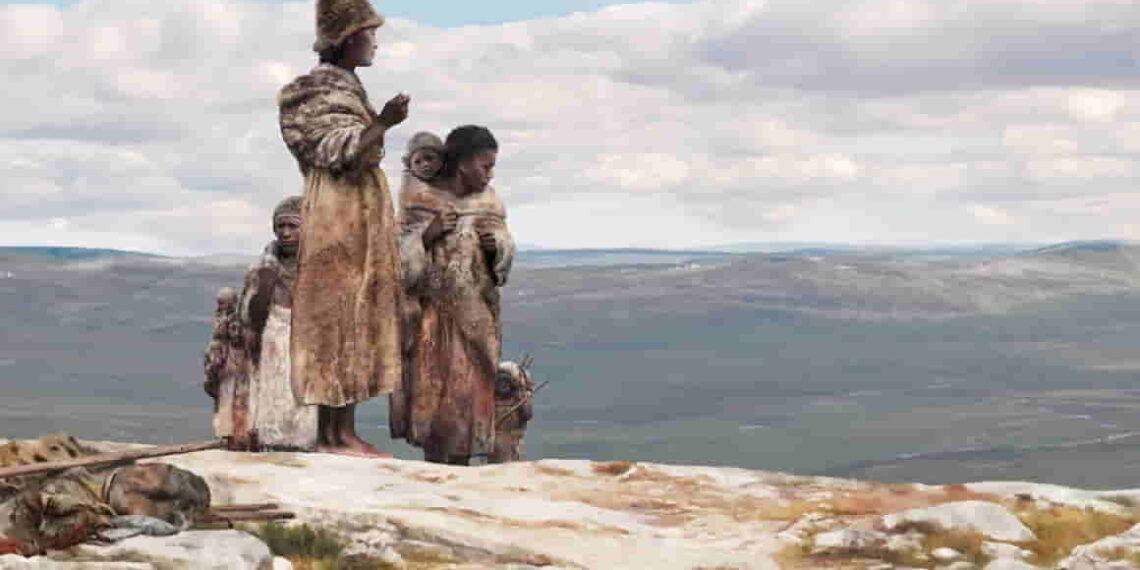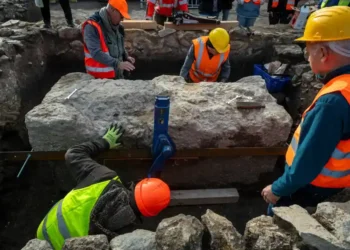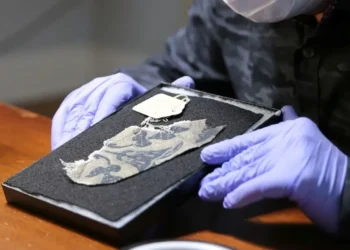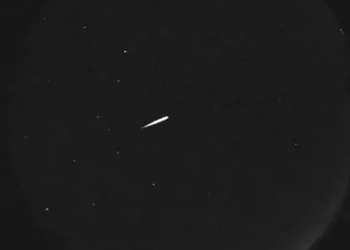Oldest Human DNA Reveals a Lost Chapter in Humanity’s Story
Scientists have made a groundbreaking discovery by recovering the oldest-known Homo sapiens DNA in Europe, shedding light on humanity’s complex relationship with Neanderthals. This remarkable find comes from ancient genomes sequenced from 13 bone fragments found in a cave beneath a medieval castle in Ranis, Germany.
Ancient Family Revealed
The remains, dating back 45,000 years, belonged to six individuals, including a mother, her daughter, and distant cousins. These early Europeans carried traces of Neanderthal ancestry, revealing that their ancestors interbred with Neanderthals around 1,500 years earlier.
This discovery highlights an intimate and long-standing connection between Homo sapiens and Neanderthals. The interaction likely occurred as modern humans migrated out of Africa and encountered Neanderthals, who had been living across Eurasia for 250,000 years.
Key Insights Into Neanderthal Ancestry
Since the sequencing of the first Neanderthal genome in 2010, researchers have known about interbreeding between the species. However, this new study refines the timeline, revealing that humans and Neanderthals interbred extensively between 50,500 and 43,500 years ago. The height of this interaction occurred about 47,000 years ago.
A parallel study, analyzing genomes from 59 ancient and 275 living humans, confirmed that most Neanderthal ancestry in modern humans stems from a single, prolonged period of gene flow. This genetic exchange has left a lasting imprint on humans today, with Neanderthal genes making up 1–3% of modern genomes.
A Shared Legacy of Survival
Neanderthal DNA passed down to modern humans includes genes that influenced immune function, skin pigmentation, and metabolism—traits that likely helped early humans survive in harsh ice-age climates. Some genetic variants proved particularly beneficial, helping humans adapt to cold environments and resist local pathogens.
However, not all Neanderthal DNA was advantageous. Certain regions of the human genome, known as “archaic deserts,” lack Neanderthal genes, likely due to the harmful effects these genes caused, such as infertility or diseases. The X chromosome, which is critical for male fertility, was particularly affected, suggesting challenges for hybrid offspring.
A Pioneer Population That Vanished
The Ranis cave dwellers were among the first Homo sapiens in Europe, numbering only a few hundred individuals. They had dark skin, dark hair, and brown eyes, reflecting their recent migration from Africa. Despite their pioneering presence, their lineage eventually disappeared, leaving no direct descendants.
Lost Branch of the Family Tree
This research underscores the fragility of early human populations. Similar to Neanderthals, other Homo sapiens groups in Europe and Asia also vanished around 40,000 years ago. Scientists believe these extinctions were not necessarily caused by competition with modern humans but may have resulted from environmental pressures or other factors.
Refining the Human Timeline
These findings provide crucial insights into human migration and interaction. By 43,500 years ago, the main wave of migration out of Africa was essentially complete, with Neanderthal ancestry firmly integrated into non-African populations. Yet questions remain, such as why East Asians have more Neanderthal DNA than Europeans and why Neanderthal genomes show limited Homo sapiens DNA.
Piecing Together the Past
The Ranis discovery offers a rare glimpse into a critical period of human history. With only a few ancient genomes available, each discovery is a key to unraveling the mysteries of human evolution.
As research continues, scientists aim to better understand the lives, diets, and eventual disappearance of these early pioneers. The story of humanity is not just one of triumph but also of survival, adaptation, and loss. As Johannes Krause, a senior author of the study, reflects, “Human history is not always a story of success.”
This article was rewritten by JournosNews.com based on verified reporting from trusted sources. The content has been independently reviewed, fact-checked, and edited for accuracy, neutrality, tone, and global readability in accordance with Google News and AdSense standards.
All opinions, quotes, or statements from contributors, experts, or sourced organizations do not necessarily reflect the views of JournosNews.com. JournosNews.com maintains full editorial independence from any external funders, sponsors, or organizations.
Stay informed with JournosNews.com — your trusted source for verified global reporting and in-depth analysis. Follow us on Google News, BlueSky, and X for real-time updates.













